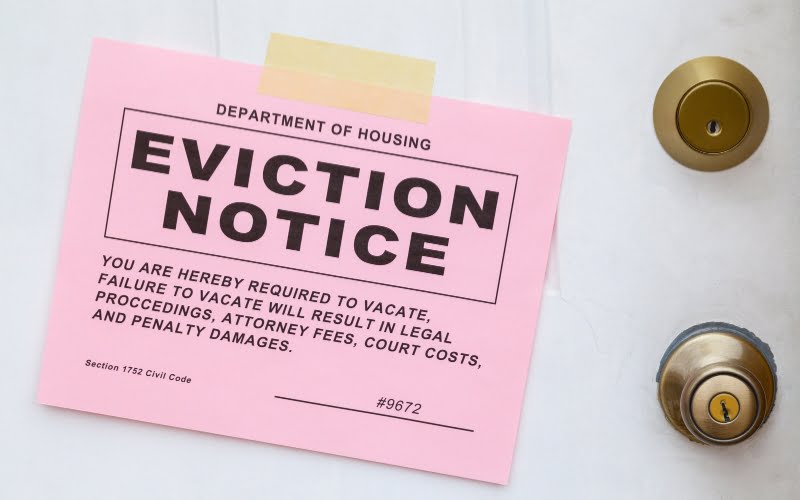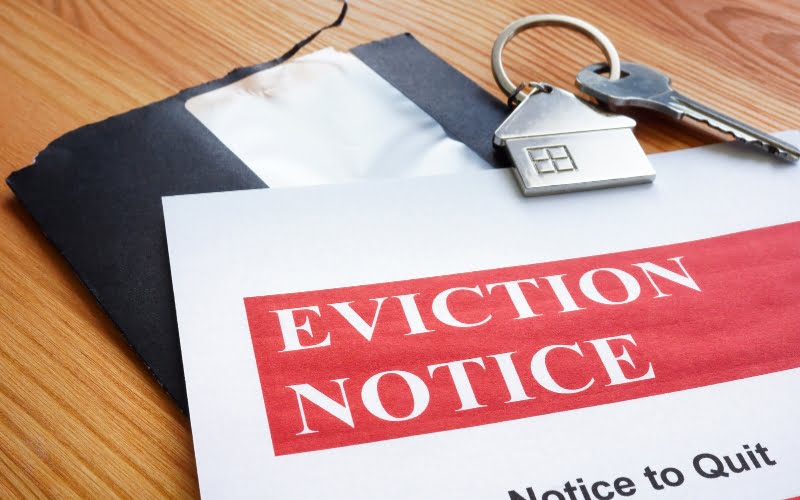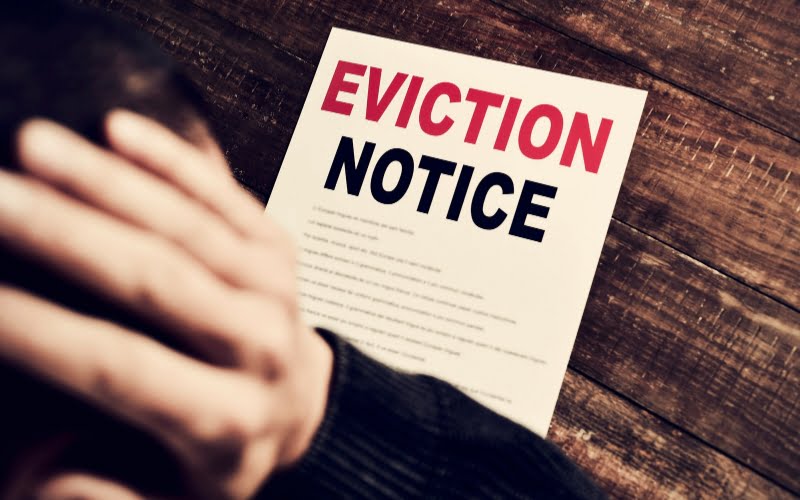Last Updated on March 18, 2024 by Kelvin Nielsen
As a tenant in Arizona, you have a right to fight against an unjust eviction from your rented premises.
The Arizona Residential Landlord & Tenant Act (ARLTA) requires landlords to follow the proper eviction process when removing a tenant. The following is a basic overview of the process the landlord must follow.
- Have a legally justified reason to evict you. For instance, nonpayment of rent, illegal activity, habitability violation, or no lease.
- Serve you with an eviction notice. For instance, if the eviction is due to nonpayment of rent, then the landlord must serve you with a 5-Day Notice to Pay. This will give you up to 5 days to pay the due rent or move out. If you don’t, the landlord could continue the eviction process by moving to court.
- File a complaint in court and serve you with a copy of the Summons and Complaint.
- Allow you time to respond to the allegations. This will give you an opportunity to fight against the eviction by presenting a legal defense.
- Attend the court hearing for the judgment.
- If the judgment favors the landlord, the court will issue them with a Writ of Restitution. The writ will give you up to 5 days to leave.
This is the exact step-by-step process that your landlord must follow for a successful eviction process. If they don’t and make mistakes or even engage in wrongful eviction methods, you may be able to stop or delay the eviction.
In today’s blog, you’ll learn everything you need to learn when it comes to fighting/stopping eviction in Arizona.
How to Fight an Eviction in Arizona
Arizona law allows tenants the opportunity to answer the landlord’s allegations. You must submit the answer on or before the initial appearance. The initial appearance is normally held 2 days after being served with a copy of the Summons and Complaint.
The answer may be oral or written, and you can choose to confirm or deny the landlord’s allegations. If you choose to fight the landlord’s allegations, the following are examples of the legal defenses you may give.
1. You corrected the violation.
In Arizona, a landlord must stop the eviction proceedings against a tenant who has remedied a violation.
For instance, to evict a tenant due to nonpayment of rent in Arizona, a landlord must serve the tenant with a 5-Day Notice to Vacate. The eviction notice will give you two options: either to pay the rent due or move out within the five days.
If you pay all the due rent within the 5 days, then the landlord must stop further eviction proceedings against you.
2. The eviction was based on discriminatory reasons.
This is another legal defense you can use to stop your eviction in Arizona. The Federal Fair Housing Act requires landlords to treat all tenants fairly regardless of the following protected classes.
- Race
- Color
- Religion
- Nationality
- Disability
- Sex
- Familial status
The penalties for tenant discrimination in Arizona can be severe. The penalties can range between $16,000 and $65,000, depending on whether the violation is a first-time offense of a repeat offense.
3. The eviction was illegal in the first place.
As already mentioned, the only way a landlord can evict a tenant in Arizona is through a court order. The landlord must not try to engage in wrongful eviction methods such as:
- Locking you out.
- Removing your personal belongings from the unit.
- Shutting down your utilities.
- Entering your rental unit repeatedly without notice. This is an example of “constructive eviction.” It’s illegal.
- Harassing or intimidating you in an attempt to force you to leave.
Other than illegal eviction methods, here’s a guide on things a landlord cannot do in Arizona.
4. You exercised a legal right.
Among the legal rights tenants have in Arizona is the right to “repair and deduct” if the landlord fails to make repairs.
You see, ARLTA guarantees tenants the right to live in a habitable property, which is pest-free and has air conditioning. If the landlord fails to provide these, you may be able to exercise a legal right such as breaking the lease without penalty or repairing the issue yourself and then making appropriate deductions on future rent payments.
If you exercise such rights, the landlord must not retaliate against you by trying to evict you. The eviction exercise will not only be illegal, but will also stop as well.
5. The eviction notice had errors.
You may also be able to fight an eviction in Arizona if the landlord serves you an eviction notice riddled with significant errors. The following are some examples of errors that you can leverage on to stop the eviction.
- The landlord did not serve the notice properly. In Arizona, landlords must serve an eviction notice to a tenant in either of two ways. That is, either by hand delivering it to the tenant, or by mailing a copy to the tenant via certified or registered mail.
- The notice did not state the correct reason for the eviction. An eviction notice must state the correct reason for the eviction, such as nonpayment of rent or lease violation. If it doesn’t, then you may be able to argue against the eviction.
- The notice didn’t give the tenant the proper time to move out. In Arizona, the notice period differs depending on the reason for the eviction. For instance, if for nonpayment of rent, the landlord must serve the tenant with a 5-Day Notice to Vacate, and if to remove a tenant for not having a lease, the landlord must serve the tenant with a 30-Day Eviction Notice.
Conclusion
Landlords in Arizona, just like in the rest of the 49 states, are required to follow the proper eviction process when removing a tenant from their rented premises. If your landlord doesn’t, you may be able to use the errors as defenses to fight the eviction.
Disclosure: The content herein isn’t a substitute for advice from a professional attorney. It’s only meant to serve educational purposes. If you have a specific question, kindly seek expert attorney services.
Sources: ARS § 33-1368, ARS § 1381, ARS § 33-1368(B), Ariz. Rev. Stat. § 33-1368(A) (2022), Ariz. Rev. Stat. § 33-1375 (2022), Ariz. Rev. Stat. § 33-1367 (2022), Ariz. Rev. Stat. § 33-1363 (2022)

Hi, I’m Kelvin Nielsen, an experienced landlord and accomplished real estate lawyer. My focus is on answering your questions about renting in the hopes of making your life as a renter or a landlord a bit easier.







